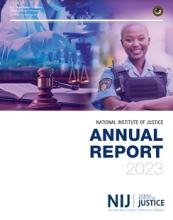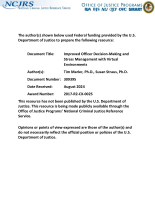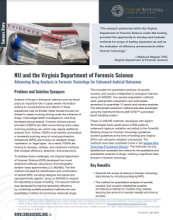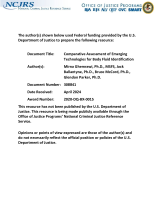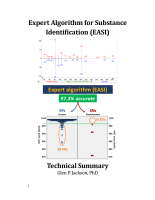Development
Trends in Heroin Use Among Arrestees in the Drug Use Forecasting Program
Developing a Regulatory Bureaucracy - The Office of Surface Mining Reclamation and Enforcement
Application of Silica-based Hyper-crosslinked Sulfonate-modified Reversed Stationary Phases for Separating Highly Hydrophilic Basic Compounds
Enhanced Ignitable Liquid and Substrate Database Functionality for Improved Casework and Research
Overview of Forensic Pathology
Human remains are treated as a separate and unique type of forensic evidence. An autopsy of the remains is conducted to establish the cause and manner of any death that is violent, unusual or untimely. A forensic pathologist completes a post-mortem examination and examine death scene findings. The medical history of an individual may also be reviewed to help determine if the death was natural...
National Institute of Justice Fiscal Year 2023 Annual Report
Enhancing Genetic and Epigenetic Sample Preparation with Microfluidics
Early Intervention for Victims of Crime: Evaluation of Skills for Psychological Recovery
Improved Officer Decision-Making and Stress Management with Virtual Environments
NIJ FY24 Invited to Apply - Forensic Technology Center of Excellence (FTCOE)
NIJ FY24 Invited to Apply – Forensic Science for Criminal Justice Purposes Program
Success Story: NIJ and The Virginia Department of Forensic Science Advancing Drug Analysis in Forensic Toxicology for Enhanced Judicial Outcomes
NIJ FY24 Invited to Apply - American Association for the Advancement of Science (AAAS) Science & Technology Policy Fellowships (STPF)
Understanding the Impact of COVID-19 on Victim Services
The COVID-19 pandemic had a detrimental impact on communities across the nation and significantly affected various aspects of individuals’ lives. One of the negative impacts was an increase in gender-based violence accompanied by shifting barriers to accessing services and support. Victims and victim service providers faced various challenges dealing with the increase in need for services, navigating barriers to help-seeking, and addressing logistical issues.
See the YouTube Terms of Service and Google Privacy Policy
Lessons Learned on the Methodological Challenges in Studying Rare Violent Incidents
Comparative Assessment of Emerging Technologies for Body Fluid Identification
Webinar Transcript: NIJ FY 2024 Research and Evaluation on School Safety
This webinar provided information on the NIJ FY 2024 Research and Evaluation on School Safety solicitation. In collaboration with BJA, this solicitation will seek applications for rigorous research and evaluation projects to fill knowledge gaps in two topical areas:
- Studies on the root causes and consequences of school...
Expert Algorithm for Substance Identification (EASI)
Webinar Transcript: NIJ FY 2024 Research and Evaluation on Youth Justice Topics
This webinar will provide an overview of the NIJ FY 2024 Research and Evaluation on Youth Justice Topics solicitation. In collaboration with the Office of Juvenile Justice and Delinquency Prevention, NIJ seeks applications for research and evaluation projects that inform policy and practice in the field of...
Webinar Transcript: NIJ FY 24 Evaluation on Desistance
NIJ hosted a webinar providing an overview of the NIJ FY 24 Evaluation on Desistance Solicitation, in which NIJ seeks proposals for rigorous evaluations of desistance-focused interventions to advance understanding of strategies that might aid in the desistance process and identify innovative approaches to measure the desistance process.




